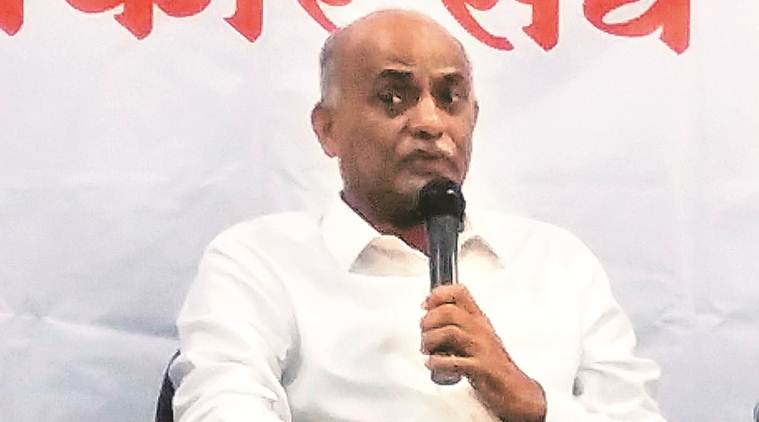Goal of surgical strikes was deterrence by punishment: Lt Gen (retd) Nimbhorkar
Lieutenant General (retired) Rajendra Ramrao Nimbhorkar also spoke about Pakistan’s heightened involvement in the region and said that with such acts of aggression, the neighbouring country had lost its diplomatic edge.
 Nimbhorkar said there was nothing unusual about such retributory strikes, but they were necessary to restore operational balance along the Line of Control.
Nimbhorkar said there was nothing unusual about such retributory strikes, but they were necessary to restore operational balance along the Line of Control.
Written by Sadaf Inamdar
Lieutenant General (retired) Rajendra Ramrao Nimbhorkar, who played a role in the surgical strikes on terror camps across the Line of Control in 2016, said their ultimate goal was deterrence by punishment. Nimbhorkar was speaking to the media during a ‘Meet The Press’ interaction organised by the Pune Union of Working Journalists on Friday, ahead of the third anniversary of the strikes.
“The September 18 attack on the Uri brigade headquarters’ administrative area that led to the death of 19 soldiers and injuries to over 34 soldiers was what prompted us to take action. The developments on the night of September 29 (2016) were indicative of a fundamental transformation in our strategic and tactical culture. From a goal-oriented perspective, the choice to carry out the strike couldn’t have come sooner. Up until then, there was a lot of talk of avenging the death of our civilians as well as soldiers on the border, but no remedial action was ever taken. The ultimate goal of the strikes was deterrence by punishment,” said Nimbhorkar, recalling the operation on the intervening night of September 28-29.
He said there was nothing unusual about such retributory strikes, but they were necessary to restore operational balance along the Line of Control. Nimbhorkar added, “Tactically, it was a very well thought out plan. The target list was scrutinised by a top-secret chain of command that numbered barely a handful of people and the various options were vetted by officers before the government approved them…The attacks were carried at such a pace that there was very little room for error. However, our forces are very well trained and disciplined and such daunting tasks did not fluster them.”
Speaking about the scrapping of Article 370 that gave special status to Jammu and Kashmir, Nimbhorkar said, “After the mass exodus of Kashmiri Pandits, the entire profile of the land was transformed. To reverse this, revocation of Article 370 was necessary. The exiled community has a chance of re-integration now. Currently, the area is gripped with the problem of indoctrination and radicalisation of youth due to spread of … anti-India sentiments. Hopefully, with this measure, through education we can control the alienation of the society.”
Nimbhorkar also spoke about Pakistan’s heightened involvement in the region and said that with such acts of aggression, the neighbouring country had lost its diplomatic edge. “Even after the retaliation in 2016, the international community did not say anything. There is a tacit licence. Pakistan has a vested interest in preventing the progress of Jammu and Kashmir, because by doing so they can fuel separatist sentiments in some quarters which will fit with their larger narrative of gaining power using terrorism as a tool, but it is our responsibility to ensure this doesn’t happen,” he said.







